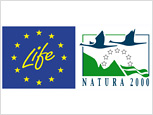Fota Wildlife Park Celebrates Birth of Five Endangered Ring-Tailed Lemurs
Fota Wildlife Park is delighted to announce the recent arrival of five endangered Ring-tailed lemur babies to the free-range troop and invites the public to participate in naming them through the form below for a chance to win one of five conservation annual passes.
The birth of these lemurs marks a significant milestone for Fota Wildlife Park, with four females, Quinta, Aqua, Brida, and Dolly (known as DC), giving birth to the five youngsters. Merlot, a four-year-old lemur who joined Fota Wildlife Park from Parc Zoo du Reynou, France, in 2022, is the father of all the newborns, expanding the free-range group of Ring-tailed Lemurs to a total of fourteen members.

Lemurs are endemic to the island of Madagascar. Ring-tailed lemurs are currently classified as endangered with recent reports suggesting that there has been a 95% reduction in the wild population of Ring-tailed lemurs since 1990, with 3000 Ring-tailed lemur remaining in the wild.
“This is a momentous occasion for us,” said the Lead Ranger, Teresa Power. “As a relatively new breeding group, we are thrilled to witness the successful reproduction within our lemur group, signifying their adaptation and settlement into their habitat here at Fota. Ring-tailed lemurs are synonymous with Fota Wildlife Park, and have been present since we opened the gates over 40 years ago. They are a free-roaming species so they don’t have a specific habitat and can go where they please around the Palm Walk Islands. One of the unique aspects of the park is our free-ranging animals, such as wallabies and kangaroos, and our visitors delight in seeing many of these species crossing their path.

“Our Ring-Tailed lemurs are not only an iconic species but also a testament to the importance of conservation efforts,” Teresa continued ” The Island of Madagascar is the only place on earth that lemurs are native to, and it’s losing a staggering amount of biodiversity through human encroachment on the native landscape. Madagascar has lost 90% of its forest cover in the last 200 years. This has resulted in 80% of its animal and plant life being in danger of extinction. We hope that these births will help educate the general public about the enormous threat to Madagascan biodiversity.”
The birth journey commenced on March 22nd when three-year-old DC gave birth, followed by Aqua, aged eight, who welcomed twins on March 24th, making DC an aunt as well as a mother. Subsequently, seven-year-old Brida delivered her baby on March 25th, and most recently, on the evening of April 9th, ten-year-old Quinta gave birth.
Teresa Power said “As the babies continue to nurse and bond closely with their mothers, their genders remain undetermined until they are old enough to be carefully health-checked by our animal care team and weighed. Visitors can catch glimpses of the free-range troop as they explore Palm Walk, indulging in fresh leaves and buds, or seeking shelter in their purpose-built house within the Madagascan village. The lemurs’ playful antics, including jockey-style rides on their mothers’ backs, are entertaining our visitors and primate team alike!”
The Ring-tailed lemur troop is an amalgamation of two resident lemurs and four new females from Wildlands Adventure Zoo in the Netherlands. Fota Wildlife Park has a history of breeding Ring-tailed lemurs since 1984 and many of their young have travelled to other wildlife parks and zoos across the globe as part of international endangered breeding programmes.
Ring-tailed lemurs typically give birth between March and April after a gestation period of approximately four and a half months. Females can produce one or two offspring per year, starting from around three years of age. During the breeding season, males engage in spirited competitions for females through stink fights, that is rubbing scent on the end of their tails and waving it in front of their opponent, showcasing their dominance and reproductive prowess.
For more information on Fota Wildlife Park which is open daily from 9.30am, see www.fotawildlife.ie.
(Image credits: Darragh Kane)
~











